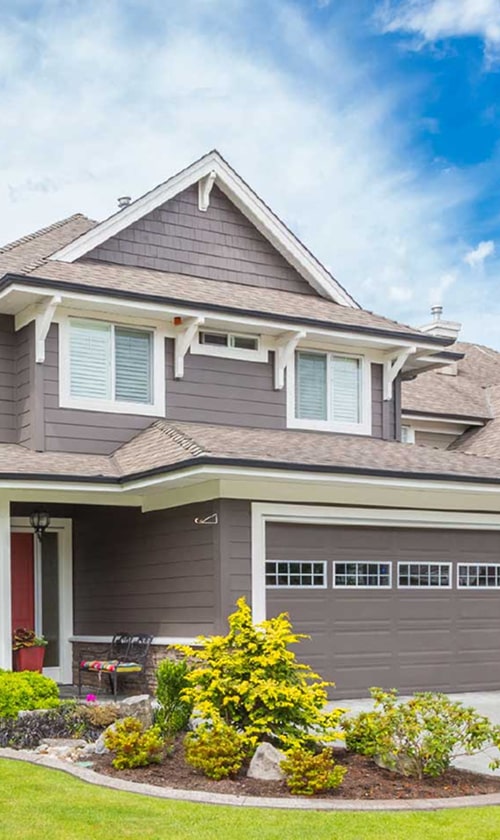Understanding Boiler Types and Functionality

When selecting a boiler, it’s crucial to understand the different types available and their functions. Combi, system, and conventional boilers each serve unique purposes and have distinct features. Assessing their energy efficiency and performance can help us make an informed decision for our installation needs.
Differentiating Between Combi, System, and Conventional Boilers
Combi boilers are space-saving and provide hot water on demand. They combine a water heater with a central heating boiler, making them efficient for smaller homes. We find them ideal for small spaces since no separate hot water cylinder is required. Yet, they may struggle to provide enough hot water when multiple taps are in use.
System boilers include a hot water tank but avoid cold water tanks, requiring less space than conventional boilers, while still meeting higher demands. They are advantageous for homes with multiple bathrooms as they can supply hot water to more than one outlet at once. Although slightly larger than combi options, their performance balances well against space efficiency.
Conventional boilers, also known as traditional or regular boilers, require a separate hot water cylinder and a cold water storage tank. Best suited for homes with old radiator systems, they manage high hot water demands easily. Installation can be more complex and take up more space, yet their reliability and familiarity often outweigh these factors in larger households.
Evaluating Energy Efficiency and Performance of Boilers
When evaluating energy efficiency, condensing boilers typically stand out. They recover more heat than non-condensing models, reducing fuel consumption and lowering energy bills. High efficiency benefits both the environment and us, as homeowners interested in cost-effective solutions.
Another energy-efficient option is the electric boiler, which can be nearly 100% efficient because they convert all used energy into heat. However, they might be less cost-effective if electricity prices are high compared to gas.
Performance factors include how quickly a boiler can deliver hot water and maintain heating levels. Combi boilers often have high efficiency due to heating only when needed, while system and conventional boilers may suit different performance needs based on home layout and usage patterns. Balancing energy usage and comfort is key to successful boiler selection.
Assessing Your Hot Water and Heating Needs
To choose the right boiler, we need to understand our home’s hot water and heating needs. Considering factors like household size and the number of bathrooms helps us make an informed decision.
Determining Hot Water Demands and Water Cylinder Requirements
When planning, it’s important to assess how much hot water our household uses daily. We should count the number of bathrooms and consider peak usage times, such as mornings.
Factors to consider:
- Number of People in the House: More people usually mean greater hot water requirements.
- Bathroom Count: More bathrooms can mean a need for a larger capacity boiler.
- Appliances: Dishwashers and washing machines using hot water can impact demand.
It’s also vital to decide if we need a hot water cylinder. Large households often benefit from having one to store extra hot water. A system boiler, paired with a cylinder, can meet these requirements effectively.
Calculating Heating Needs for Optimal Boiler Size
Understanding our heating needs helps us select the best boiler size. We should evaluate our home’s size and insulation.
Key considerations:
- Home Size: Larger homes need more powerful boilers to heat efficiently.
- Insulation Quality: Well-insulated homes retain heat better, possibly needing smaller boilers.
- Radiator Count: More radiators can mean a need for a larger boiler.
Using heating calculators can aid in determining the optimal boiler size. These tools consider factors like climate and square footage, providing accurate assessments.
Choosing the right boiler size is crucial for ensuring comfort and efficiency in our homes. By blending these factors, we can make well-informed decisions that cater perfectly to our heating and hot water demands.
Boiler Installation Requirements and Considerations

When installing a boiler, it’s crucial to focus on key aspects like the necessary plumbing and piping, adhering to building regulations, and choosing the right installer. These factors ensure a safe and efficient operation, avoiding future issues.
Understanding Necessary Plumbing and Piping Infrastructure
Proper plumbing and piping are essential for successful boiler installation. We must ensure that the pipes are the correct size and type to handle the boiler’s output. Common materials include copper, PEX, or steel, each with specific advantages.
It’s important that the water supply and return lines are correctly installed to manage the flow. This avoids pressure problems and ensures consistent heating. The layout should minimize bends and obstructions to maintain efficiency.
We also need to plan for adequate space around the piping. This allows enough room for maintenance and any future repairs. If possible, we should also install valves that help in isolating sections for easy service.
Compliance with Building Regulations and Obtaining Permits
Following building regulations is vital in boiler installation. We must check local codes, as they differ by region. These rules cover aspects like venting, location, and emissions. Obliging with these ensures safety and legality.
Obtaining necessary permits is a step we cannot overlook. We should contact local authorities early in the process to understand which permits are required. These might include plumbing or gas services permits, depending on the boiler type.
Proper documentation ensures inspections go smoothly. Inspectors may need to see plans and specifications, so having these ready is important. This step prevents potential fines and ensures our installation is up to standard.
Selection and Role of Qualified and Gas Safe Registered Installers
Choosing a qualified installer is key to a successful boiler setup. We should look for professionals listed on the Gas Safe Register, which confirms they are licensed and experienced. This registry is a legal requirement in many areas for anyone working with gas appliances.
Qualified installers bring expertise in safe installation practices. They understand how to handle complex systems and can efficiently resolve issues. Working with a proficient installer also provides peace of mind, knowing the job is done correctly.
During installation, they should explain key functions and safety procedures. This guidance ensures we operate our boiler safely and effectively. Their role doesn’t end after installation; a good installer offers support for maintenance and any future questions we may have.
Strategic Installation Process and Steps
Ensuring a seamless boiler installation involves preparing for the removal of the old system, executing the installation of the new boiler, and finalizing with proper commissioning and a comprehensive handover.
Preparing for the Removal of the Old Boiler
Before installing a new boiler, we must first prepare to remove the old one. This involves shutting off fuel supplies, electricity, and water connections to the existing system. Careful attention is required to drain water from the system completely.
We should inspect the current placement area and identify any obstacles that might hinder the removal. Safety measures should be in place to prevent accidents during the process. Ensuring proper disposal methods for the old boiler is crucial. We must comply with environmental regulations during this stage.
Executing the Boiler Installation Process
Installing the new boiler begins with positioning the equipment correctly and ensuring all components are available. It is vital to follow manufacturer instructions for safe and effective installation. Precision in connecting fuel lines and water pipes is essential.
Next, venting should be installed according to safety standards to ensure safe operation. Electrical connections should also be reviewed and tested. We should conduct a meticulous check to avoid leaks or improper setup. This phase requires technical skills and attention to detail.
Finalizing the Installation with Commissioning and Handover
Commissioning is the final step where we ensure everything operates as intended. Testing the boiler under varying conditions helps identify potential issues. We should check all safety features and verify energy efficiency.
Once satisfied with the setup, we move to the handover. This involves educating users about operating procedures and maintenance tips. We ensure they know how to use the system safely and efficiently. Providing documentation and contact information for after-sales support completes the process.
Post-Installation Considerations
After installing a new boiler, there are several important steps we must take. These include securing the warranty, planning for regular maintenance, and considering smart controls and renewable energy options.
Securing the Warranty and Understanding Terms
The warranty provides protection and peace of mind, so it’s essential to fully understand its terms. We should ensure that all paperwork is filled out correctly and submitted promptly. The warranty might cover specific parts or repairs, but it often requires regular servicing by certified technicians. Missing a scheduled service can void the warranty. Therefore, keeping track of service dates and requirements is important. If we ever face a claim, having all documents ready can make the process smoother. Understanding what’s covered and for how long helps us make informed decisions when issues arise.
Scheduling Regular Maintenance and Boiler Service
Regular maintenance is vital for the efficient operation of our boiler. Scheduling annual check-ups can prevent unexpected breakdowns and ensure longevity. A qualified professional should inspect the system, check for leaks, and clean components. They will also verify that safety controls are working properly. We should maintain records of every service. These records are useful to highlight the service history and meet any warranty requirements. Regular maintenance not only optimizes performance but also helps reduce energy bills. By being proactive, we can avoid costly repairs and extend the life of our boiler, ensuring it works efficiently and safely for many years.
Integrating Smart Controls and Renewable Energy
Incorporating smart controls can significantly improve the efficiency of our boiler. These controls allow remote access and scheduling through a phone or computer. We can set timers and adjust temperatures based on our needs, optimizing comfort and energy use. Additionally, exploring renewable energy options, like solar thermal systems, can further enhance efficiency. These systems can pre-heat water, reducing the workload on the boiler. By integrating smart technology and renewables, we not only save on energy costs but also contribute to a greener, more sustainable future. It’s a forward-thinking approach that aligns well with modern energy practices.




